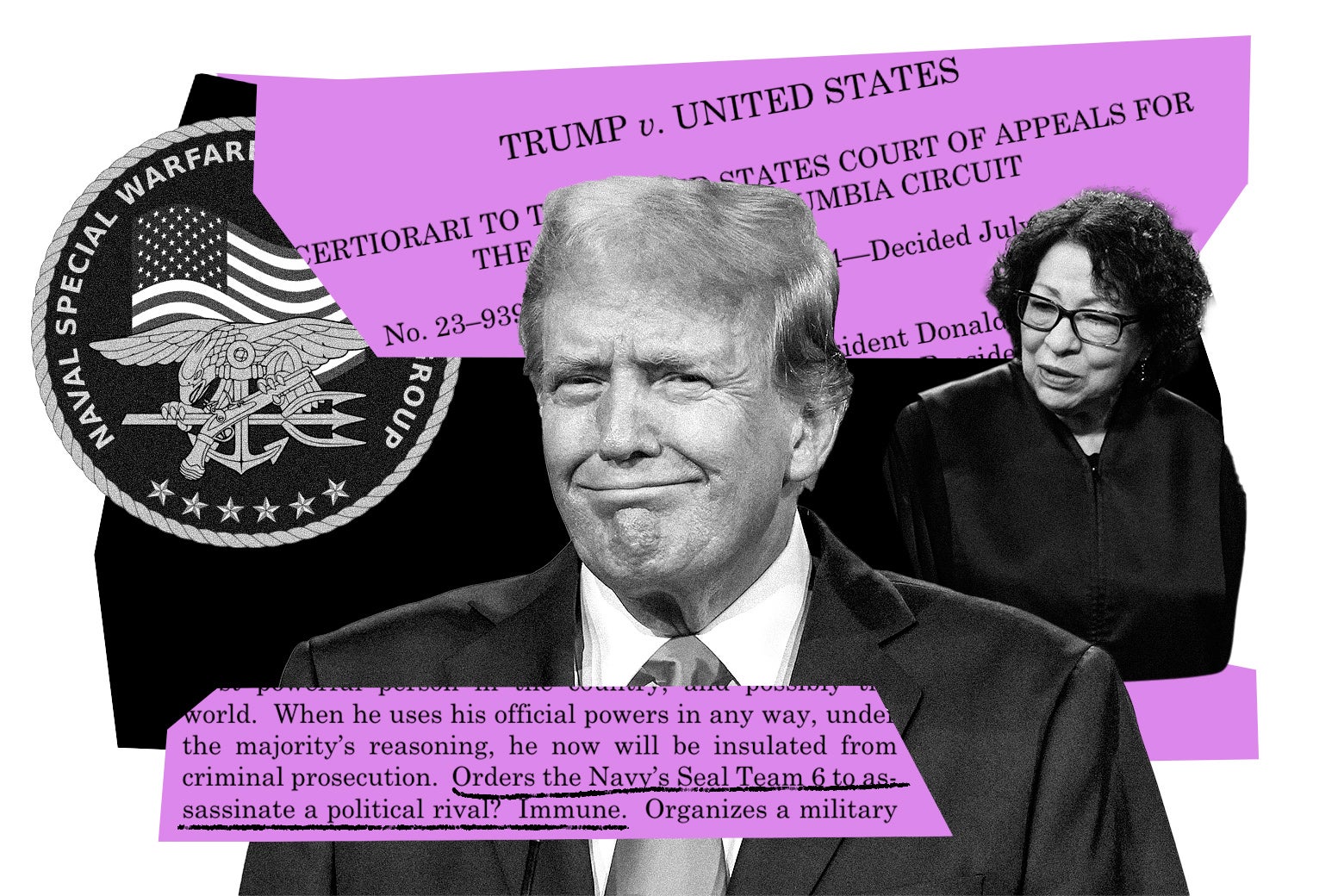Maze
吃瓜群众

Can the President Send SEAL Team Six to Assassinate His Rival? After Monday, Yes.
This fundamentally alters American democracy as we know it.
Lithwick: Mark and I have spent the past couple months talking about a monarchic Supreme Court that is uncheckable on any front we can discern, and the sense that the uncheckable judiciary is not fully appreciated by the nation. But this move, from a monarchic judicial branch to a monarchic presidency, happens at the speed of light. I’m just thinking about what it means to have a two-headed monarchy in the place of checks and balances. And I’m wondering: After this decision, can the president actually call in SEAL Team Six in order to have a political opponent assassinated and avoid prosecution by saying he was exercising his constitutional authority? Can the president just invoke the Insurrection Act in order to break up a lawful protest? What’s going to constrain this theory of what feels, to me, like unlimited power and zero accountability as long as the president deems it an “official act”?
Brettschneider: Certainly not this court. And that’s what’s so important to get across—this is really about the fundamentals of democracy. We’re talking about the president committing crimes with impunity that threaten the stability of democracy itself. And the presidency has become so powerful that if Trump wins in November, he could use his office to literally destroy democracy.
How do you stop that? You would hope the courts would say that a president who committed a crime can be prosecuted after they leave office. But this Supreme Court has abdicated that responsibility. It has gotten rid of so many checks on the presidency that we took for granted. But we can’t let them have the last word on this. Citizens have got to take the Constitution back. We’ve got to demand legislation that limits the office, and the appointment of justices who see things with common sense. But where we’ve historically been able to push back is through elections. We’ve got to figure out how to make this election a referendum on democracy. Because Trump has now essentially been protected in all things, even as outrageous as a political assassination of his opponent. And no president should be able to do that.
Stern: Can I draw out a point that was implicit in what you just said, Corey? Through Roberts, the majority draws out this distinction between official and unofficial acts as though it’s the most natural thing in the world—like, Of course we wouldn’t want the president to be punished for committing crimes in the course of exercising the duties of his office.
But as Justice Sonia Sotomayor explained in her dissent, the lesson from Nixon is that when presidents use their power to commit official acts in pursuit of a criminal scheme, that is when we should be most concerned about their conduct and most eager for them to face accountability. Because that is when their criminal conduct poses the most heightened threat to democracy. If the president can take this immense power we entrust him with and manipulate it for corrupt ends—knowing he will never face accountability—then we have fundamentally changed the nature of what the presidency is. He is no longer a person who is elected by the people to represent them for four years. He is an emperor who walks into office, surveys his new powers, and gets to decide how to use them for his own corrupt advantage—to enrich himself, to entrench his authority, to prevent the peaceful transition to power, to even execute his rivals. I just think that is exactly the opposite of how the executive power had been understood until Monday morning. And I find myself baffled that six justices would say that presidential accountability is now constitutionally prohibited rather than constitutionally required.
